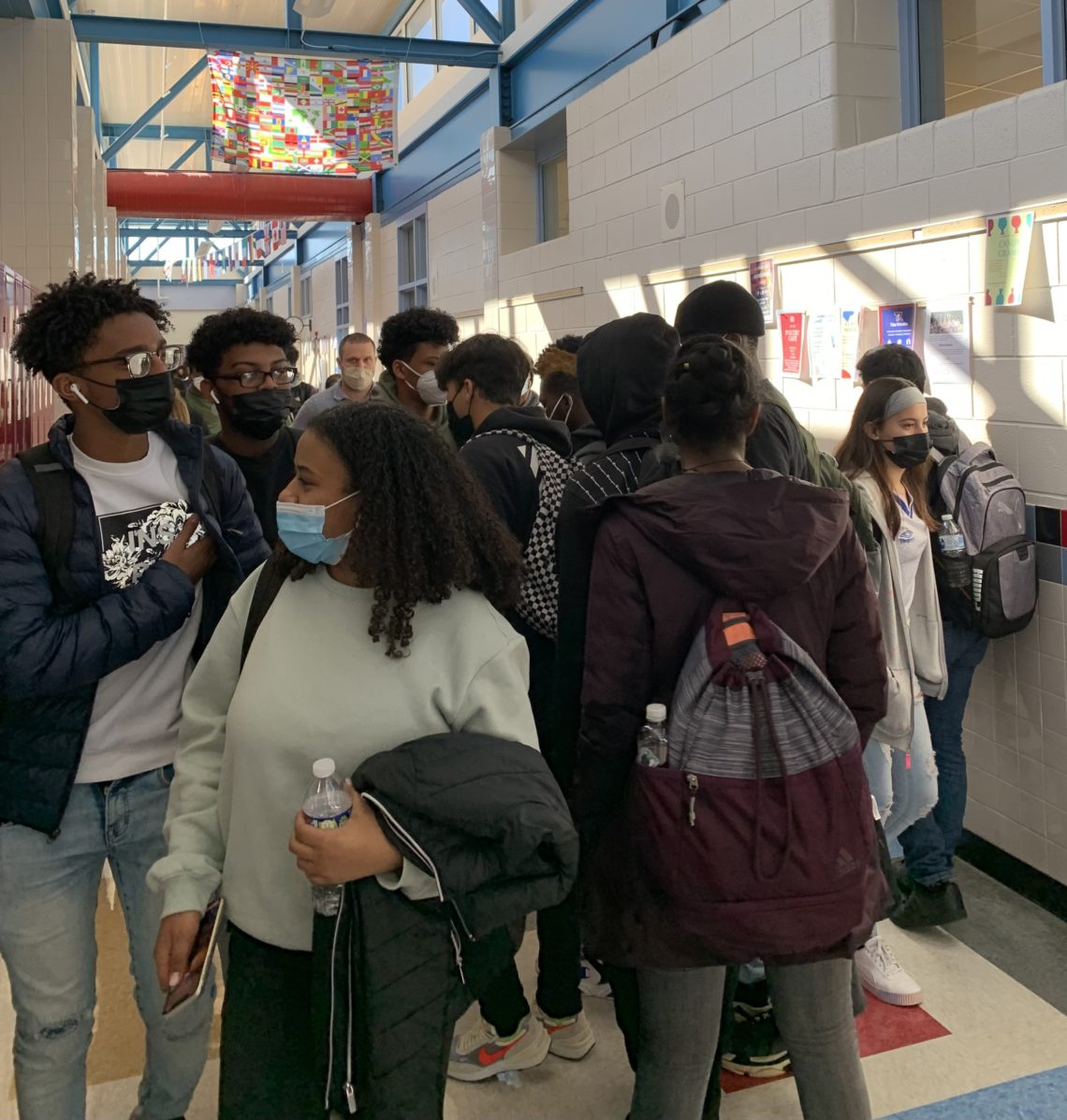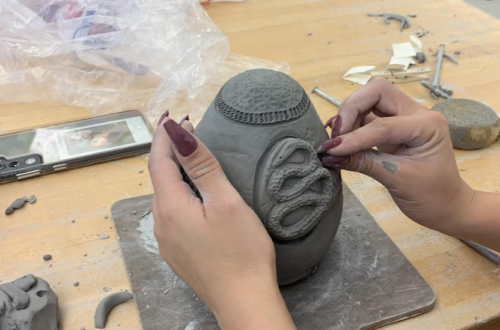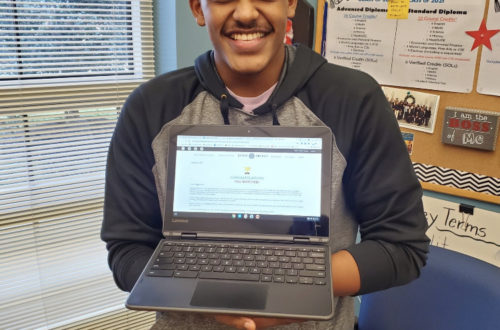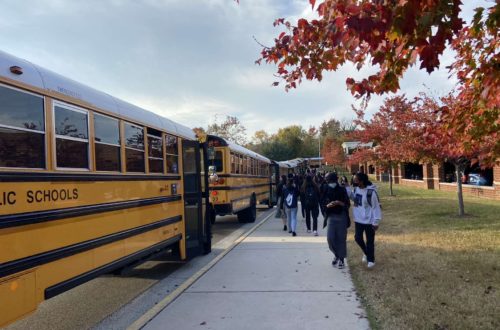Yahney-Marie Sangaré
Staff Writer
In the aftermath of a year of virtual learning, the 2021-2022 school year has swept in an array of change and renewal at Alexandria City High School. In the midst of COVID-19, the student resource officer debate, and a new grading policy, teachers are receiving the brunt of the impact.
“This year has been tough on everyone — students, teachers, and administration. There are so many unforeseen effects from the pandemic… it’s caused stress for teachers, admins, navigating how to face student issues and Covid policies in this space,” said Ms. Linsey McCombs, a 12th grade English teacher.
Changing COVID-19 policies have impacted the ability of teachers to plan and conduct multiple activities. Audience quotas on sports, performances, and more have impacted teachers’ ability to engage their students.
“The one activity that has been the most difficult is trying to conduct chemistry labs safely because students need to wear both masks and goggles,” said Mrs. Jennifer Lay, a chemistry teacher. “This means that we have limited the overall number of labs and that lab activities must be short and not last the entire class period.” Lay also emphasized the diligence of her students. “Students in my classes have been good about wearing masks with occasional reminders from me and mask breaks as needed in the hallway. However, from talking to other teachers, I know this is not the case in all classes.”
The pandemic is hardly the only major adjustment teachers have had to make. Earlier in the school year, a citywide policy surrounding SROs sparked a heated conversation in the community. After various violent incidents, school resource officers were restored to the building, but are now out on administrative leave due to circumstances unrelated to the original debate.*
“I appreciate that the SROs are back on campus because it’s helpful for students to feel a little safer, but also [for] staff. It’s also a deterrent to some behaviors that were happening before,” said Ms. McCombs, “A lot of what we saw was just the effects of the pandemic; students being at home, pent up frustration, anger, that came out in these incidents.”
The grading policy changing in ACPS has also been a node for discussion of evolving teaching strategies. The ever-evolving grading policy posits changes to when late work is accepted, securing a one week grace period first established during the 2020-2021 school year.
“I think my biggest issue with the late work policy is that, because it is directed by the school board, it is a policy that is very top-down; it wasn’t really designed by teachers in the school who work with students every day,” said Ms. Katherine Bentley, the English 11 Professional Learning Community (PLC) Lead.
“I appreciate the late work policy because it’s helpful to give students a bit of grace, considering they’ve dealt with Covid or had to quarantine because of siblings. Beyond that, it’s a little frustrating that teachers are not able to establish firm deadlines to help students stay on track and move through the curriculum because of this kind of ‘open door’ policy. I’ve heard from a number of students that feel like it does them a disservice. It has been frustrating because for most students, they [the policies] are not as helpful as they could be,” said McCombs.
Lay participates on a committee to review the grading policy and works with the school board. The committee also includes students and has been active in recommending revisions. “It has been difficult coping with all of the changes in the grading policy over the last two years because the changes have come frequently and in the middle of marking periods that have already begun, which is confusing to teachers and students,” she said.
Teachers are asking for understanding and patience as everyone adjusts to the new normal.
“I wish that people in our community would recognize that this is not a normal school year and that things cannot just go back to the way things were before the pandemic for many reasons,” said Lay.
*These interviews were conducted prior to allegations being made against SROs, causing them to be placed on leave. Revolving SROs are currently in the building.
Photo courtesy of Ethan Gotsch






